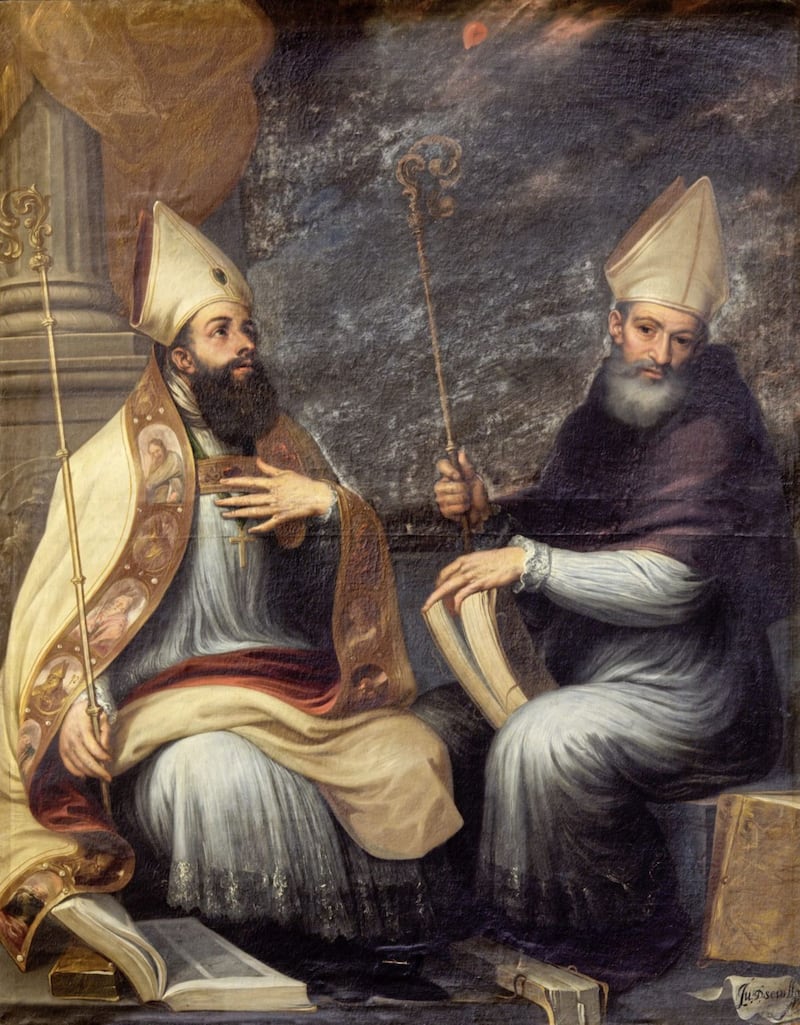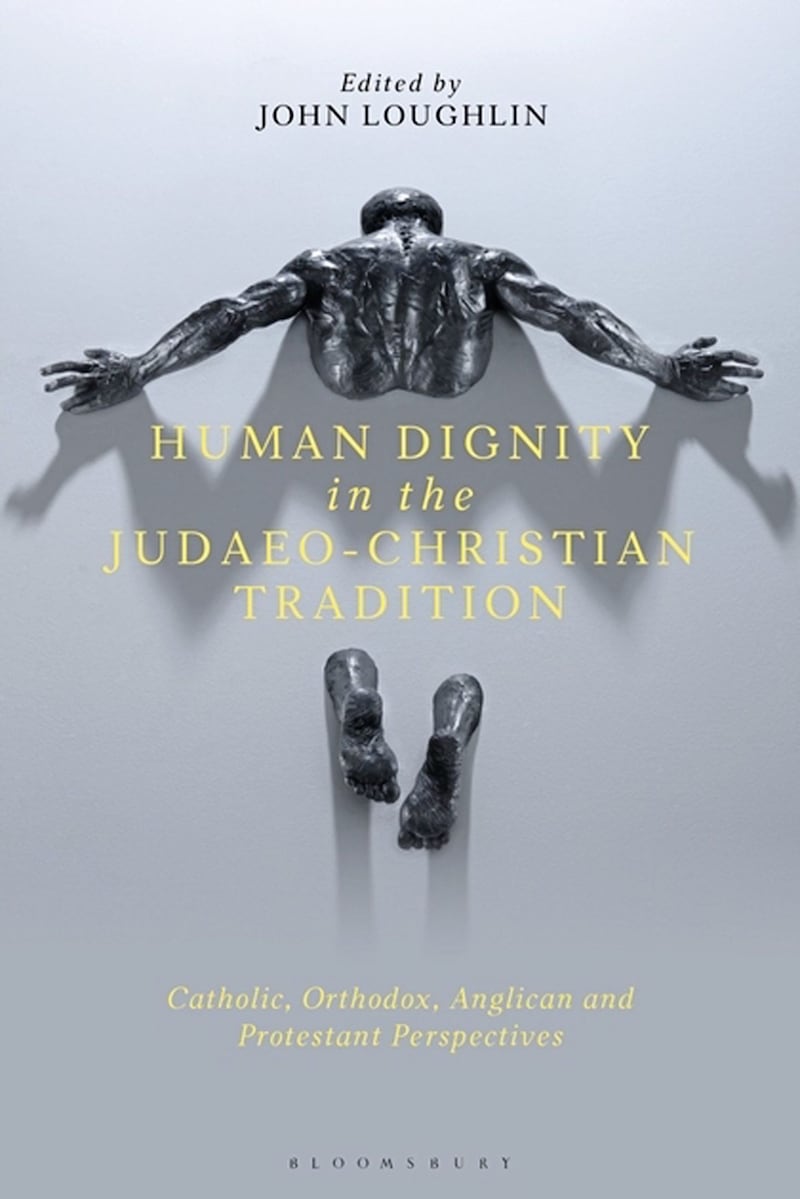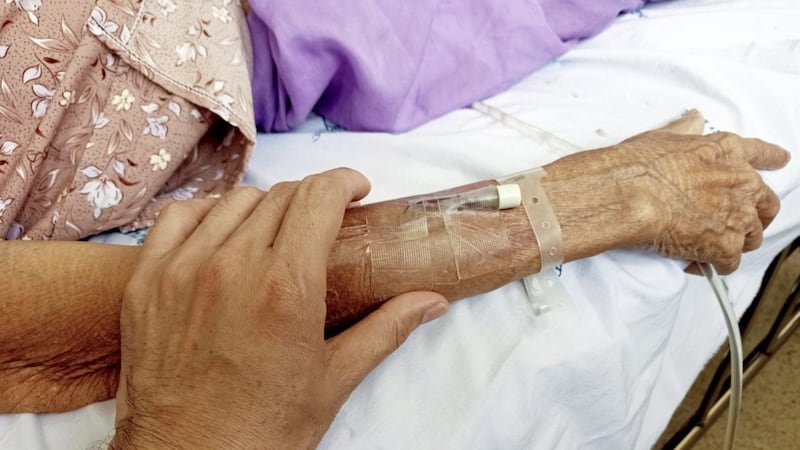THE term 'human dignity' is a key concept in modern conventions of human rights such as the Universal Declaration of Human Rights of the UN and in some constitutions such as the German Basic Law.
In recent years, however, there has developed a vigorous debate concerning the meaning of the term and this has given rise to widely diverging, and even diametrically opposed, definitions.
'Dignity' is evoked to justify practices such as abortion, same-sex marriage, euthanasia and assisted suicide ('dignity in dying').
At the same time, those who oppose such practices - mainly but not always those who practise a religion - claim that they contravene human dignity.
In both parts of Ireland, same-sex marriage and abortion have been introduced, in the south by referendums, in the north, imposed by the UK government.
Admittedly, some political parties which claim to represent the Catholic community, such as the SDLP, have long supported same-sex marriage and recently have become more sympathetic to the liberalisation of abortion.
The DUP remains resolutely opposed to both these practices and, apparently, they have begun to attract support from some Catholic voters despite their political or constitutional differences.
In the south of Ireland, all the main political parties have adopted liberal positions on abortion and homosexuality and it is likely that assisted suicide or euthanasia will be the next 'cause' that they adopt.
Catholic ethical positions seem to have been well and truly rejected by the key elites in Irish society and large sections of the population - an extraordinary turnabout compared to 15 or 20 years ago.
Given this radical shift in Irish attitudes towards these hot-button issues and the widespread rejection of the Catholic Church's ethical teaching, it is worthwhile to analyse more closely how this term 'dignity' is being used, often unreflectively, by the protagonists.
Catholic ethical positions seem to have been well and truly rejected by the key elites in Irish society and large sections of the population - an extraordinary turnabout compared to 15 or 20 years ago
In the current debate among philosophers, human rights lawyers and political theorists, there seem to be two major stances adopted: First, the traditional Catholic/Christian understanding; and, second, the liberal stance deriving from the writings of Immanuel Kant - the neo-Kantian approach.
The Catholic understanding of human dignity is rooted in the account of creation found in Genesis where it is said that God created human beings (man and woman) in his own "image and likeness".
St Irenaeus of Lyons was the first of the early Fathers to build a theological and spiritual system on a distinction between 'image' and 'likeness'.
According to Irenaeus, as a result of the Fall, man lost the 'likeness' to God but retained his 'image'.
Not all the subsequent Fathers saw a distinction here and among those who did there were different ways of understanding what the two terms meant.
Irenaeus thought that the 'image' of God could be found even in the body (apparently a reaction to the Gnostic rejection of the body and because of the Incarnation).
Others, however, thought it meant we have God's image because we possess 'reason' or are spiritual beings.
Although because of the Fall we lost the 'likeness' - that is, we ceased to behave like God does - we can never lose his 'image' without ceasing to be human beings.
For St Paul, we restore the likeness by becoming 'like' Christ who is the "perfect image of the invisible God" (Colossians 1:15).
The distinction was also adopted by St Augustine who used the parable of the prodigal son to explain what it means to lose the likeness: the son's lifestyle was lived in the regio dissimilitudinis (the land of unlikeness) and the likeness is restored by the return to the land of the father - the regio similitudinis.
Augustine also thought that to be made in God's image meant that human beings reflect the Trinitarian character of God and also meant the capacity to love truly as the Trinity did.
St Bernard of Clairvaux's mystical theology was a development of these Augustinian themes applied to the monastic life - the monk returns to the Father through humility and love: the Cistercian monastery is a schola caritatis (a 'school of love').
St Thomas Aquinas retained the distinction and further develops Augustine's notion of 'image' reflecting the Trinity.

The other main source of understanding human dignity used by the Fathers came from Greek philosophy, albeit mediated by the Roman Cicero.
Cicero, who was influenced by Stoicism, was probably the first to define, in a famous work entitled De Officiis (On Human Duties) what made humans special and gave them a special dignity: only they have the capacity to reason while other animals are content to eat, sleep and multiply.
St Ambrose was a fervent advocate of Cicero's ideas and, in fact, he worried that when he died he would be seen as a Ciceronian rather than as a Christian.
Cicero remained an important figure in the Western Church not least because of the beauty of his Latin.
Neo-Platonism was also an important source in the development of Christian theology and was used by Origen, Ambrose and Augustine, among many others.
It remained a powerful intellectual current throughout the medieval period and into the Renaissance.
Christian humanism and human dignity is therefore a synthesis of the biblical account of creation with the Greco-Roman philosophical currents outlined above.
They are the foundation of the European Renaissance from the 14th to the 15th centuries and underlie the extraordinary artistic, literary, musical and architectural achievements of that period.
Some have claimed that the Renaissance as a rupture with the so-called 'Dark Ages' (obscurantist Catholicism).
In fact, there is a profound continuity between it and the preceding medieval period. The break came in fact with the Reformation when Luther and Calvin rejected the distinction between "image and likeness" on the grounds that this is simply a form of Hebrew alliteration.
For Luther, the image as well as the likeness was destroyed by original sin and man has to be recreated entirely anew given his 'total depravity'; for Catholicism, the fact that the image was retained meant grace could build upon nature, which is still good.
The Reformation produced the Wars of Religion and these, in turn, led to the Enlightenment when philosophers began to reject Christianity and revelation and turned instead to Deism and eventually to the cult of Reason.
It was within this context that Immanuel Kant, although himself a Christian, attempted to produce a doctrine of human dignity that did not depend on the Bible.
Kant defined human dignity as meaning 'autonomy' exercised by the use of reason. It is this notion that has been retained in the 20th century by those, such as the late American philosopher John Rawls, who follow Kant.
But 'autonomy' in the contemporary period has come to mean something rather different from the way that Kant understood it.
For him, autonomy meant that we choose to follow universal laws that our reason can discern. In the contemporary period, it means rather 'doing one's own thing' in any way one wants.
It is easy to see the attractions of such a stance: I am no longer bound by any authority except my own desires; I can choose myself whether to live or die, if I am a woman whether to give birth to a baby in the womb, and even to choose my own gender.

This concept of 'choice' has become the predominant value in our political, policy and legal systems in Western countries including Ireland.
Most Irish journalists seem to espouse it and it permeates our culture through television and the internet.
Catholics do respect the principle of personal autonomy but for them is should always be exercised in the context of the common good; that is, it is not an absolute value but one which is relative to the overall good of society as a whole. It is balanced by the concept of the common good.
The liberal view is that the only limit to autonomy is where my free choice interferes with the free choices of others.
But this is a highly individualistic and reductionist understanding of the human person.
The Catholic concept of the human person and his dignity is that he is a complex being who is essentially relational - that is, he exists as a person by being a member of a community.
Furthermore, he cannot be reduced to one dimension of his being - the physical or the spiritual, his reason or his will - but his full development as a human being involves the harmonious development of all these dimensions.
This includes the spiritual or transcendent as well as caring for his material needs.
The elevation of 'choice' by contemporary liberalism to be the highest value reduces the person to simply one dimension.
Ultimately, 'choice' without reason and concern for the common good leads to violence and conflict and the destruction of social life.
The challenge for the Church today in Ireland and in other Western societies is to find a way in which personalist and integral humanism can be made better known even among Catholics, many of whom seem ill-informed about their own faith.
It needs to show that its version of human dignity will lead to greater happiness and more positive outcomes for society than the current extreme liberalism which has taken hold of its elites. It is an uphill battle but one worth fighting.
Professor John Loughlin is an Emeritus Fellow of St Edmund's College, Cambridge, where he was the director of the Von Hügel Institute until September 2015.
He was also a Senior Fellow of the Department of Politics and International Studies of the University of Cambridge and is an emeritus Professor of European Politics at Cardiff University.
In 2015 he was appointed a Research Fellow of Blackfriars Hall and member of the Las Casas Institute in Oxford.
He is a Fellow of the UK's Academy of Social Sciences, a Fellow of the Royal Historical Society, of the Royal Society of Arts and of the European Academy of Sciences and Arts.
In 2014 he was appointed a Fellow of the Learned Society of Wales. He has held the Chaire Ganshof van der Meersch at the Université Libre de Bruxelles in 2013-14 and several Visiting Professorships and Fellowships in Oxford, Paris, Florence and Princeton, at the Université Libre de Bruxelles, the University of Umeå, Sweden, and the Institut d’Etudes Politiques in Aix-en-Provence.
In 2010, the French government appointed him an Officier dans L'Ordre des Palmes Académiques in recognition of his contribution to the spread of the French language and culture.
Prof Loughlin has carried out extensive research on territorial politics in Europe and on the relationship between religion and politics.
He has also spent several years as a Cistercian monk at Our Lady of Bethlehem Abbey, Portglenone, Co Antrim where he carried out studies for the priesthood in philosophy, theology and biblical studies.
His many publications include: Human Dignity in the Judaeo-Christian Tradition: Catholic, Orthodox, Anglican and Protestant Perspectives (ed.) (Bloomsbury, 2019); Religion and Politics in Europe, in José Magone (ed.); The Routledge Handbook of Comparative Politics (Routledge, 2014); The Theological and Secular Dimensions of the Modern State: Historical and Contemporary Perspectives, in Ferran Requejo and Camil Ungureanu (eds); Secular or Post-secular Democracies in Europe? The Challenge of Religious Pluralism in the 21st Century (Routledge, 2014); The Routledge Handbook of Regionalism and Federalism (ed. with J. Kincaid and W. Swenden, 2013); Which Path to Religious Freedom? A Catholic Perspective on International Affairs, commissioned by the Caritas in Veritate Foundation; The Oxford Handbook of Subnational Democracy in Europe (OUP).




